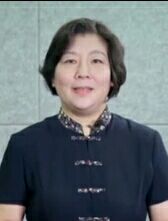
Introducing China in English课程:前往报名学习
Introducing China in English is designed to provide participants with a wide range of areas that best defines Chinese culture.
开设学校:湖北大学;学科:外语、
Introducing China in English is designed to provide participants with a wide range of areas that best defines Chinese culture.
-1.1 Introduction
-1.2 Confucius and His Conception of ren
--1.2 Confucius and His Conception of Ren
-1.3 From Behavior Cultivation to Social Order
--1.3 From Behavior Cultivation to Social Order
-1.4 Confucian Thought on li
-1.5 Seminar
-Exercises
-2.1 Introduction
-2.2 Dao: The Origin of Everything
--2.2 Dao: The Origin of Everything
-2.3 Reversion: the fundamental principle in the law of nature
--2.3 Reversion: the fundamental principle in the law of nature
-2.4 Paradoxical expressions
-2.5 Comparison between Laozi and Confucius
--2.5 Comparison between Laozi and Confucius
-Exercises
-3.1 Introduction
-3.2 The Origin of Chinese Characters
--3.2 The Origin of Chinese Characters
-3.3 The Six Major Stages in the Development of Chinese Characters
--3.3 The Six Major Stages in the Development of Chinese Characters
-3.4 The Conformation of Chinese Characters
--3.4 The Conformation of Chinese Characters
-3.5 The Characteristics of Chinese Characters
--3.5 The Characteristics of Chinese Characters
-3.6 Seminar
-Exercises
-4.1 Introduction
-4.2 Lunar Calendar and Solar Calendar
--4.2 Lunar Calendar and Solar Calendar
-4.3 The First Biggest Festival: Spring Festival
--4.3 The First Biggest Festival: Spring Festival
-4.4 The Second Biggest Festival: Mid-Autumn Day
--4.4 The Second Biggest Festival: Mid-Autumn Day
-4.5 Contrast and Comparison
-4.6 Seminar
-Exercises
-5.1 Introduction
-5.2 Rich Chinese Food Culture
--5.2 Rich Chinese Food Culture
-5.3 Balanced Diet
-5.4 The Chinese Palates
-5.5 Eight Cuisines
-5.6 Seminar
-Exercises
-6.1 Introduction
-6.2 Engagement
-6.3 Preparation
-6.4 Wedding Day
-6.5 Post-wedding Ceremonies
-6.6 Seminar
-Exercises
-7.1 Introduction
-7.2 Origin of Cheongsam
-7.3 Evolution of Cheongsam
-7.4 Design of Cheongsam and Its Cultural Connotation and Aesthetic Thoughts
--7.4 Design of Cheongsam and Its Cultural Connotation and Aesthetic Thoughts
-7.5 Seminar
-Exercises
-8.1 Introduction
-8.2 History of Chinese Paper Cutting
--8.2 History of Chinese Paper Cutting
-8.3 Artistic Features of Chinese Paper Cutting
--8.3 Artistic Features of Chinese Paper Cutting
-8.4 Cultural Values of Chinese Paper Cutting
--8.4 Cultural Values of Chinese Paper Cutting
-8.5 Seminar
-Exercises
-9.1 Introduction
-9.2 The Literal Meaning
-9.3 The Architectural Layout: Two Courts
--9.3 The Architectural Layout: Two Courts
-9.4 The Architectural Layout and the Traditional Rituals
--9.4 The Architectural Layout and the Traditional Rituals
-9.5 The Mythological Animals on the Eaves
--9.5 The Mythological Animals on the Eaves
-9.6 Seminar
-Exercises
-10.1 Introduction
-10.2 Roof Styles
-10.3 Width and Depth
-10.4 Eight Trigrams
-10.5 Five Elements
-10.6 Yin and Yang
-10.7 Chinese Architectural Wisdom
--10.7 Chinese Architectural Wisdom
-10.8 Dragon as a Cultural Symbol
--10.8 Dragon as a Cultural Symbol
-10.9 Seminar
-Exercises
-11.1 Introduction
-11.2 The Historical Development of Peking Opera
--11.2 The Historical Development of Peking Opera
-11.3 The Four Major Roles of Peking Opera
--11.3 The Four Major Roles of Peking Opera
-11.4 The Facial Makeup of Peking Opera
--11.4 The Facial Makeup of Peking Opera
-11.5 Seminar
-Exercises
-12.1 Introduction
-12.2 Principles and Philosophical Bases of TCM Treatment
--12.2 Principles and Philosophical Bases of TCM Treatment
-12.3 Qi and Meridians
-12.4 TCM Healing Modalities
-Exercises
-13.1 Introduction
-13.2 The Historical Development of Chinese Painting
--13.2 The Historical Development of Chinese painting
-13.3 The Characteristics of Chinese Painting
--13.3 The Characteristics of Chinese Painting
-13.4 The Influential Painters and Their Masterpieces
--13.4 The Influential Painters and Their Masterpieces
-Exercises
-14.1 Introduction
-14.2 The Principles and Characteristics of Chinese Kung Fu
--14.2 The Principles and Characteristics of Chinese Kung Fu
-14.3 The Schools of Chinese Kung Fu
--14.3 The Schools of Chinese Kung Fu
-14.4 The Fist Fighting Techniques of Chinese Kung Fu
--14.4 The Fist Fighting Techniques of Chinese Kung Fu
-Exercises
王志茹, 湖北大学外国语学院教授,全国模范教师,湖北名师,湖北大学名师,硕士生导师。主讲课程有《大学英语》、《语言学习原理与策略》、《课程设计与教材分析》,曾先后在澳大利亚南昆士兰大学和乌龙岗大学教授《汉语》。湖北省省级精品视频公开课《英语畅谈中国》课程负责人。先后在《外语界》、《电化教育研究》等各类期刊发表学术论文22篇,主编和副主编教材4部,主持国家级、省部级等科研和教学项目21项,其中三项获得“湖北省高等学校教学成果奖”。获得全国模范教师、湖北名师、湖北大学名师荣誉称号。主要研究方向:教师教育、数字化英语教学、第二语言习得以及个体差异。
王婷,湖北大学外国语学院大学英语部讲师,硕士。从事大学英语教学研究工作,讲授《大学英语》、《英语写作》、《英语畅谈中国》等课程,湖北省省级精品视频公开课《英语畅谈中国》主讲教师之一。2011年和2012年曾在美国孟菲斯大学孔子学院从事对外汉语教学工作两年,先后开设《汉语》、《汉语语言与文化》、《中国服饰》等课程。2017年至2019年任巴西圣保罗州立大学孔子学院中方院长,致力于中国文化和汉语语言的国际推广工作。研究领域为英语教学、英美文学和跨文化交际。发表教学、科研论文10余篇;参与大学英语教学改革、大学英语教材和美国本土汉语教材、教辅的编写,以及视频课、外研社微课和资源共建等教学项目;为布克奖获奖作品《狼厅》和《提堂》的第二译者。
万莎,湖北大学外国语学院讲师,硕士。从事大学英语教学研究工作,讲授《大学英语》、《高级英语视听说》、《学术英语》等课程。湖北省省级精品视频公开课《英语畅谈中国》主讲教师之一。目前在美国孟菲斯大学与湖北大学合办的孔子学院担任汉语教师,主要从事汉语教学以及中国文化推广等工作。研究领域为心理语言学、自主学习和网络英语教学。主持湖北省教育厅人文社会科学研究青年项目1项以及第七批中国外语教育基金项目1项。
周赟赟,湖北大学外国语学院讲师。主要讲授的课程有《大学英语》, 《演讲与辩论》, 《口译》, 《西方文化》等。在CSSCI刊物《外语界》发表论文。2016年应邀在英国莱斯特大学访问学者。研究兴趣:跨文化交际,中国绘画。
吴红,湖北大学外国语学院副教授,毕业于英国兰卡斯特大学语言学系,获语言学与英语语言教学硕士学位。主讲课程有《大学英语》、《学术英语读写》、《实用英语写作》等,湖北省省级精品视频公开课《英语畅谈中国》主讲教师之一。先后在《外语界》等学术刊物上发表论文10余篇。主编2部大学英语教材《新发展大学英语前沿教程》(上海交通大学出版社)和《新标准大学英语同步测试1》(外语教学与研究出版社)。主编了《新标准大学英语综合教程》1-4册教学课件(外语教学与研究出版社)。参与了各类科研项目10项。其中教育部新世纪高等教育教学改革工程项目任务型教学法在中国大学英语课堂中运用的研究获湖北省人民政府颁发的“湖北省高等学校教学成果”二等奖。主持了湖北省教育厅项目《大学英语教材使用过程中的中国文化导入研究》。主要研究领域为英语语言教育。
杨慧, 湖北大学外国语学院副教授,2010年获得该校文学硕士学位,毕业后留校教学至今,主讲课程有《大学英语》,《创意写作》,《商务英语》2014年至2015年应邀在美国孟菲斯大学访问学者,并参与该校孔子学院工作。至今发表论文十余篇,主持省级、校级教学研究项目3项。
陆小丽,湖北大学外语学院大学英语部副教授,硕士。从事大学英语教学研究工作,讲授《大学英语》、《英语畅谈中国》、《英语演讲的艺术》和《高级英语口语》等课程。湖北省省级精品视频公开课《英语畅谈中国》主讲教师之一。荣获“2014年度本科教学优秀质量奖”、“优秀教师”、“最受欢迎教师”等光荣称号。研究领域为二语习得。主持省教育厅项目《输出驱动——输入促成理念下的大学英语写作教学研究》、《大学生中国文化对外传播能力培养研究》、《网络环境下多模式化大学英语写作教学研究》和校级教改项目《基于模因论的大学英语写作教学研究》等多项课题。
王瑰,湖北大学外语学院大学英语部讲师,硕士。从事大学英语教学研究工作十余年,讲授《大学英语》、《英语口译》、《英语高级口语》和《英美国家社会与文化》等课程。湖北省省级精品视频公开课《英语畅谈中国》主讲教师之一。曾在美国西弗吉尼亚州Morgantown High School & Suncrest Middle School从事对外汉语教学工作,同时,还在课外举办各种中国文化宣传活动。研究领域为语言与文化和课堂教学。主持并参与了省级校级研究项目多项, 公开发表相关学术文章多篇。
Josh Skarratts, 外籍教师,主讲课程为《英语写作》。
湖北大学外国语学院讲师。毕业于华中师范大学英语专业本科和湖北大学外国语学院语言学及应用语言学硕士。讲授课程:大学英语、学术英语、西方影视欣赏等。发表论文数篇,参编教材两部。研究兴趣:教育技术在外语教学中的应用。

